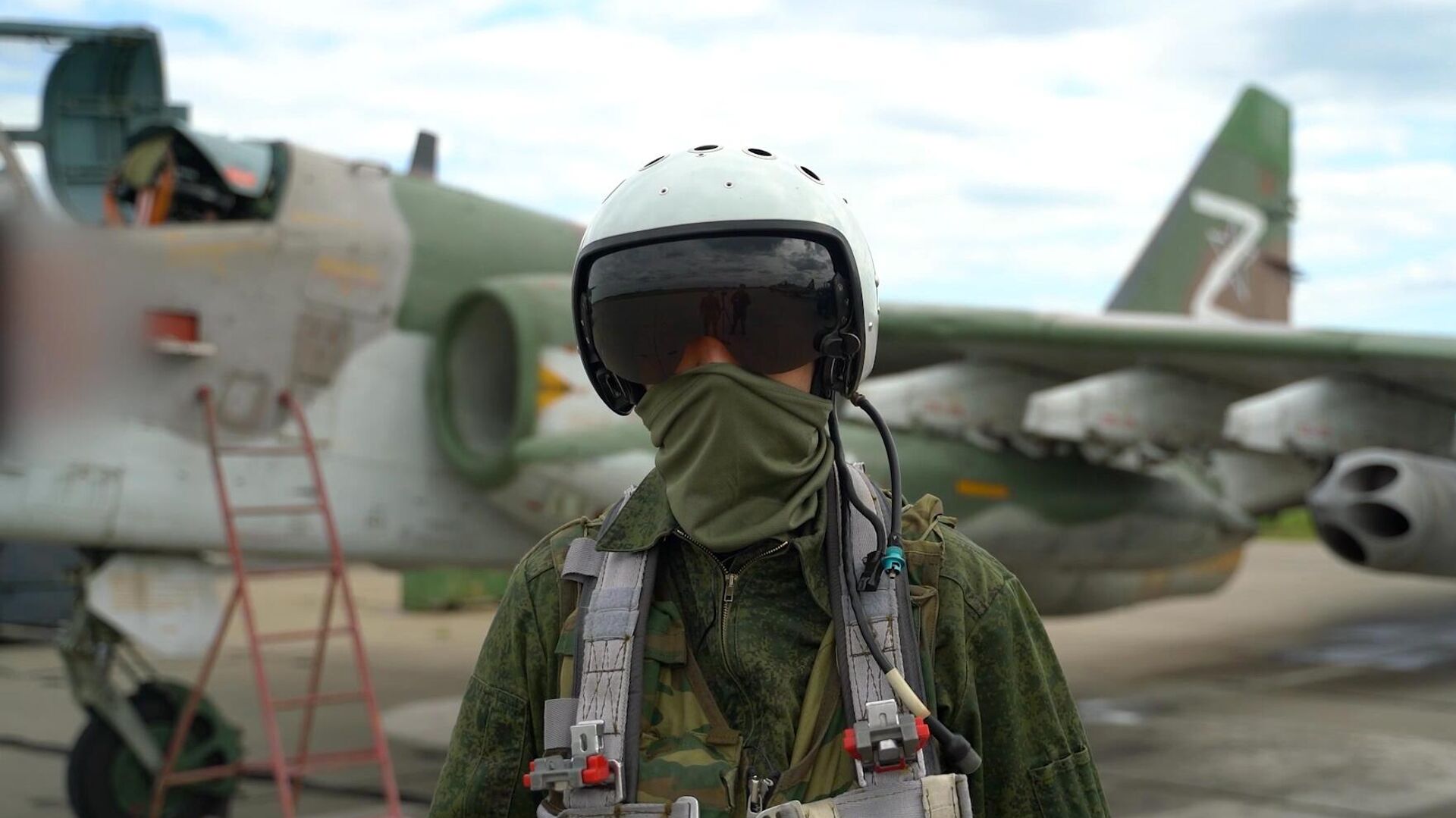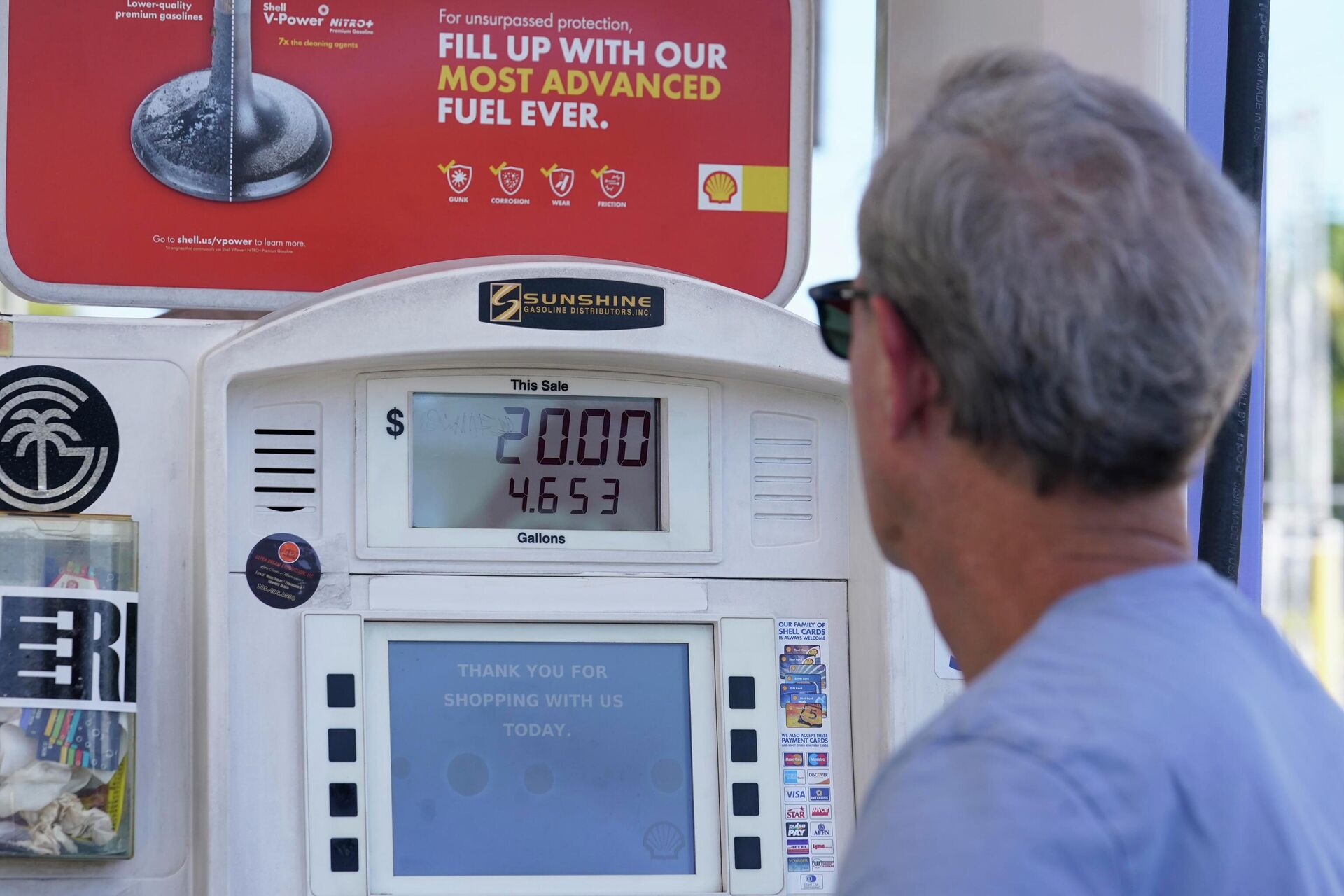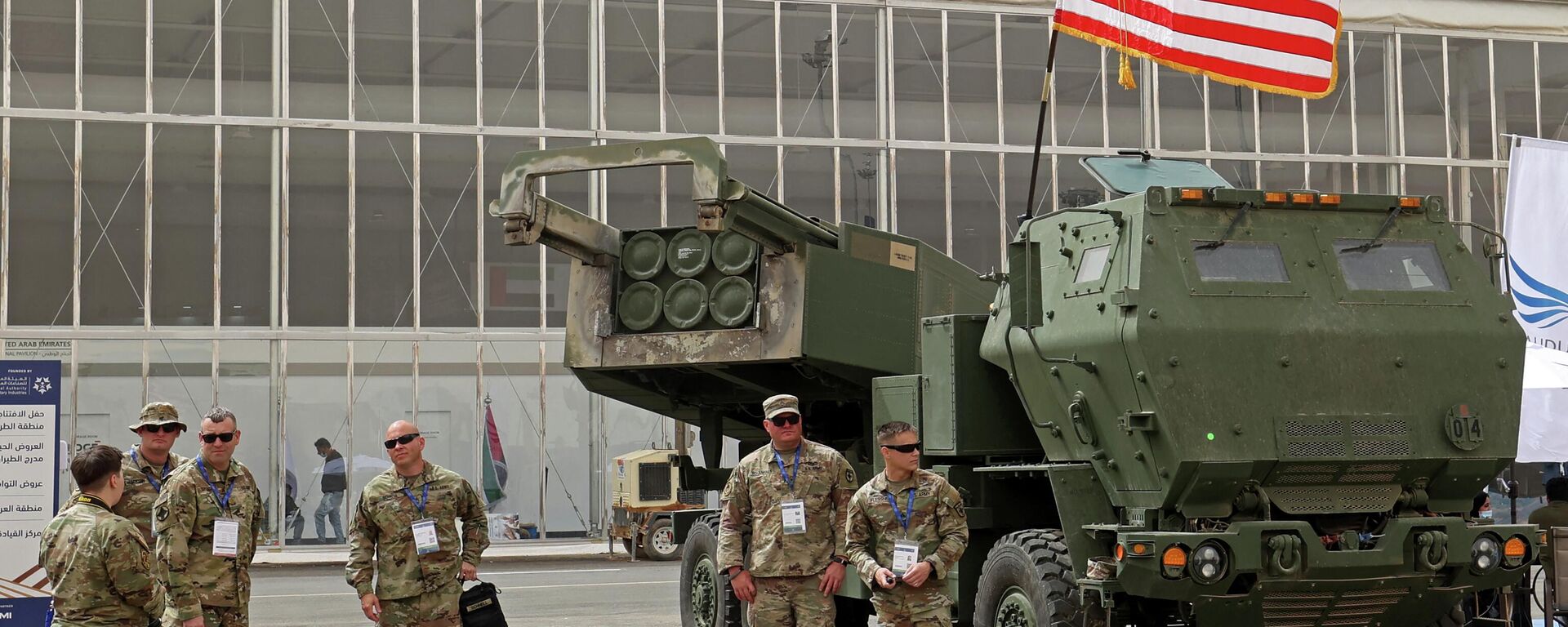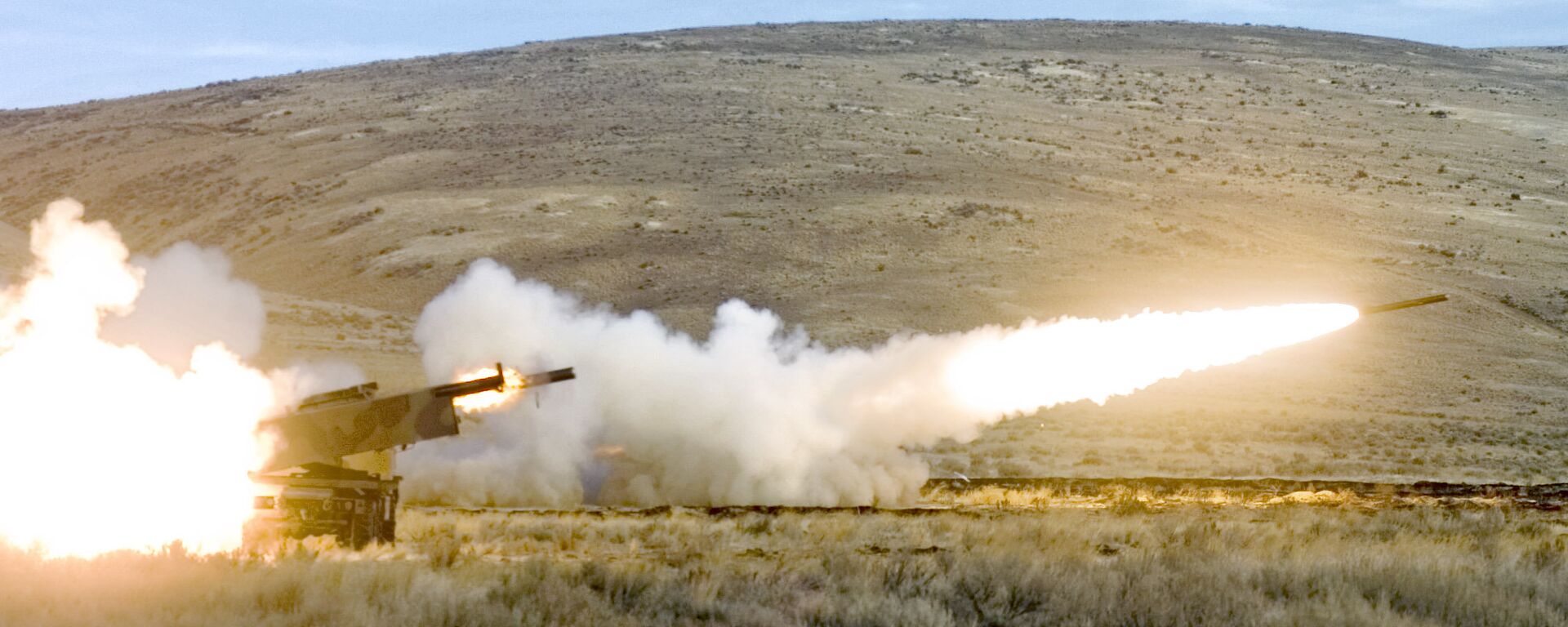https://sputnikglobe.com/20220611/ex-dod-officer-us-nato-seek-peace-as-russian-military-victory-in-ukraine-is-all-but-inevitable-1096214999.html
Ex-DoD Officer: US, NATO Seek Peace as Russian Military Victory in Ukraine is All But Inevitable
Ex-DoD Officer: US, NATO Seek Peace as Russian Military Victory in Ukraine is All But Inevitable
Sputnik International
US officials have been meeting regularly with their UK and EU counterparts to discuss how to end the Ukraine conflict through a negotiated settlement, CNN... 11.06.2022, Sputnik International
2022-06-11T11:18+0000
2022-06-11T11:18+0000
2023-02-10T09:01+0000
russia's special operation in ukraine
us
world
opinion
russia
europe
special operation
ukraine
joe biden
us midterm elections
https://cdn1.img.sputnikglobe.com/img/07e6/05/1e/1095871241_0:23:1764:1015_1920x0_80_0_0_2ed0004f4f2a41bba8bd516f775b4a03.jpg
"I think that President Biden has been torn between keeping up his administration’s propaganda talking points in public which state that official US policy is to help Ukraine win the war against Russia, and - behind the scenes - probably being told weekly, if not daily, by members of his national security team that the chances of a Ukrainian military victory remain extremely slim," David T Pyne, an EMP Task Force scholar and former US Department of Defenсe officer, says.According to Pyne, the CNN article is interesting because it shows the Biden administration’s behind-the-scenes push for peace has been continuing during most of the conflict. In particular, in May, Italy came up with a four-point framework, which included "Ukraine committing to neutrality with regard to NATO in exchange for some security guarantees, and negotiations between Ukraine and Russia on the future of Crimea and the Donbass region," according to the media outlet."Reportedly, the Biden administration was privately urging Zelensky to negotiate a peace deal until early April when Russia unilaterally withdrew its troops from northern Ukraine, ending its attempt to encircle Kiev, and from north-eastern Ukraine, which they seemed to view as a potential turning point of the war showing that Ukraine could force Russian military withdrawals. Thus the US and UK were emboldened to encourage Zelensky not to negotiate a compromise peace agreement with Russia," the former Pentagon officer says.After Russia's withdrawal, US Secretary of Defence Lloyd Austin claimed on 25 April that the US goal was to "weaken" Russia so that it no longer had the capacity of carrying out large-scale military actions. In May, Biden signed a lend-lease Bill to expedite more lethal weapons to Kiev as well as the $40Bln package of US military aid.However, in light of steady gains made in Donbass by the DPR and LPR, US officials have started to realise that Ukraine's prospects for peace will rely on diplomacy, according to CNN.First, the push for a peaceful settlement is driven by the understanding that "the potential risks of prolonging the war unnecessarily by providing a blank cheque of military aid to Kiev greatly outweigh any potential benefits"; and second, "the Biden administration and NATO leaders are coming to the stark conclusion that Russia is winning the Battle of Donbass and that ultimate Russian military victory over Ukraine is all but inevitable," Pyne says.Two Camps in Biden Administration"The Biden administration national security team is reportedly divided between liberal internationalists who want to help Ukraine fight a long war against Russia, and realists who see inherent risks of escalation in this approach," explains the EMP Task Force scholar.Initially, the liberal internationalists rejected Moscow's draft security agreements which requested legal guarantees of NATO's non-expansion eastward and non-admission of Ukraine to the transatlantic alliance, among other matters.Snubbing Moscow's security plan prompted the Kremlin to start the special operation to de-militarise Ukraine which would never have begun if US and NATO concluded a security deal with Moscow, Pyne suggests.Fortunately, before the Russian operation, the realists in the US administration succeeded in influencing Biden’s decision "to provide strategic clarity" ahead of Russia's Ukraine operation that under no circumstances would the US send troops to fight Russia or intervene militarily in Ukraine, the former Pentagon officer points out.Pyne notes that as the conflict has now dragged on for more than 100 days with no clear end in sight, the failure of Biden’s reckless policy to fight a proxy war in Ukraine has become much more difficult for the administration to deny.Meanwhile, even though Biden acknowledged the importance of a Russo-Ukrainian peaceful settlement in a 31 May op-ed, he insisted that the US should send heavy weapons to Kiev to improve its negotiating positions. The president is making a huge mistake, according to the ex-DoD officer.According to the EMP Task Force scholar, "overwhelmingly the US national security interest in Ukraine is to end the war with a compromise peace agreement as soon as possible to avoid an unwanted escalation of the conflict." Therefore, the Biden administration must take immediate action to persuade Kiev to return to the negotiating table, he believes.West is Still Reluctant to Embrace Russia's Security ProposalsIt is also clear that neither the US nor NATO are ready to return to Moscow's draft security proposals, Pyne says.The former Defense Department officer argues that "rather than expanding NATO to Russia’s borders, the West would have been far better off to invite Russia to join NATO in the early to mid-Nineties to ensure Russia did not feel threatened, and to ensure that the US and Russia never returned to being adversaries."According to Pyne, the most important thing is to negotiate and finalise a peace settlement ending the Ukraine conflict and then normalise diplomatic and trade relations between the West and Moscow, followed by the signing of a mutual security agreement creating a demilitarised buffer zone in Eastern Europe separating NATO from Russia.US Sanctions BackfiredIn addition to stepping up military assistance to Ukraine, the US has slapped an unprecedented slew of sanctions on Russia after the beginning of the special operation. However, the attempt to "bleed Russia of both blood and treasure" has come at a cost for the West. According to CNN: "The issue is particularly politically fraught heading into election season, with gas prices continuing to rise largely because of the measures the West has taken to cut off imports of Russian oil and gas," the media outlet said.Furthermore, though President Vladimir Putin’s popularity among the Russian people has increased substantially since the special operation began, Biden’s is now at an all-time low with his average approval rating having fallen to 39percent, the former Pentagon officer highlights. In addition to that, a recent poll shows public support for continued US military aid to Ukraine has dropped to only 38 percent of Americans polled, he adds."The bottom line is that the American people don’t want war with Russia. They appear ready to elect dozens of America-First Republicans to Congress who understand that the safety and security of the USA rests, not merely on maintaining a strong military, but on more friendly, productive and peaceful relations with the Russian Federation, given that it remains a nuclear superpower," Pyne emphasises.
https://sputnikglobe.com/20220606/ex-cia-analyst-us-military-aid-not-a-game-changer-for-kiev-ukraine-has-already-lost-1096064822.html
https://sputnikglobe.com/20220109/ex-pentagon-officer-biden-should-accept-russias-draft-security-agreements-as-basis-for-yalta-20-1092128161.html
https://sputnikglobe.com/20220603/himars-why-bidens-rocket-system-delivery-will-not-help-ukraine-prevail-in-conflict-with-russia-1095965246.html
ukraine
Sputnik International
feedback@sputniknews.com
+74956456601
MIA „Rosiya Segodnya“
2022
News
en_EN
Sputnik International
feedback@sputniknews.com
+74956456601
MIA „Rosiya Segodnya“
Sputnik International
feedback@sputniknews.com
+74956456601
MIA „Rosiya Segodnya“
us, opinion, europe, special operation, ukraine, joe biden, us midterm elections, inflation, security
us, opinion, europe, special operation, ukraine, joe biden, us midterm elections, inflation, security
Ex-DoD Officer: US, NATO Seek Peace as Russian Military Victory in Ukraine is All But Inevitable
11:18 GMT 11.06.2022 (Updated: 09:01 GMT 10.02.2023) US officials have been meeting regularly with their UK and EU counterparts to discuss how to end the Ukraine conflict through a negotiated settlement, CNN revealed in early June, adding that Kiev is not directly involved in those discussions. Proposals include Ukraine's non-aligned status, and a Russo-Ukraine deal on Crimea and Donbass' future.
"I think that President Biden has been torn between keeping up his administration’s propaganda talking points in public which state that official US policy is to help Ukraine win the war against Russia, and - behind the scenes - probably being told weekly, if not daily, by members of his national security team that the chances of a Ukrainian military victory remain extremely slim," David T Pyne, an EMP Task Force scholar and former US Department of Defenсe officer, says.
According to Pyne, the CNN
article is interesting because it shows the Biden administration’s behind-the-scenes push for peace has been continuing during most of the conflict. In particular, in May, Italy came up with a four-point framework, which included "Ukraine committing to neutrality with regard to NATO in exchange for some security guarantees, and negotiations between Ukraine and Russia on the future of Crimea and the Donbass region," according to the media outlet.
"Reportedly, the Biden administration was privately urging Zelensky to negotiate a peace deal until early April when Russia unilaterally withdrew its troops from northern Ukraine, ending its attempt to encircle Kiev, and from north-eastern Ukraine, which they seemed to view as a potential turning point of the war showing that Ukraine could force Russian military withdrawals. Thus the US and UK were emboldened to encourage Zelensky not to negotiate a compromise peace agreement with Russia," the former Pentagon officer says.
After Russia's withdrawal, US Secretary of Defence Lloyd Austin claimed on 25 April that the US goal was to "weaken" Russia so that it no longer had the capacity of carrying out large-scale military actions. In May, Biden signed a lend-lease Bill to expedite more lethal weapons to Kiev as well as the $40Bln package of US military aid.
However, in light of steady gains made in Donbass by the DPR and LPR, US officials have started to realise that Ukraine's prospects for peace will rely on diplomacy, according to CNN.
First, the push for a peaceful settlement is driven by the understanding that "the potential risks of prolonging the war unnecessarily by providing a blank cheque of military aid to Kiev greatly outweigh any potential benefits"; and second, "the Biden administration and NATO leaders are coming to the stark conclusion that Russia is winning the Battle of Donbass and that ultimate Russian military victory over Ukraine is all but inevitable," Pyne says.
"I think it is a hopeful development for peace that the Biden administration has begun shifting to a more realistic position after former US Secretary of State Henry Kissinger came out in support of Ukraine trading land for peace in late May around the same time as the New York Times editorial board issued a similar call," he adds.
Two Camps in Biden Administration
"The Biden administration national security team is reportedly divided between liberal internationalists who want to help Ukraine fight a long war against Russia, and realists who see inherent risks of escalation in this approach," explains the EMP Task Force scholar.
Initially, the liberal internationalists rejected Moscow's draft security agreements which requested legal guarantees of NATO's non-expansion eastward and non-admission of Ukraine to the transatlantic alliance, among other matters.
"These liberal internationalists mistakenly believe NATO to be the cornerstone of US national security when the truth is that US membership in NATO serves as a potential millstone around America’s neck that could drag it down into an unnecessary world war with Russia, which would inevitably escalate to the nuclear level," Pyne says.
Snubbing Moscow's security plan prompted the Kremlin to start the special operation to de-militarise Ukraine which would never have begun
if US and NATO concluded a security deal with Moscow, Pyne suggests.
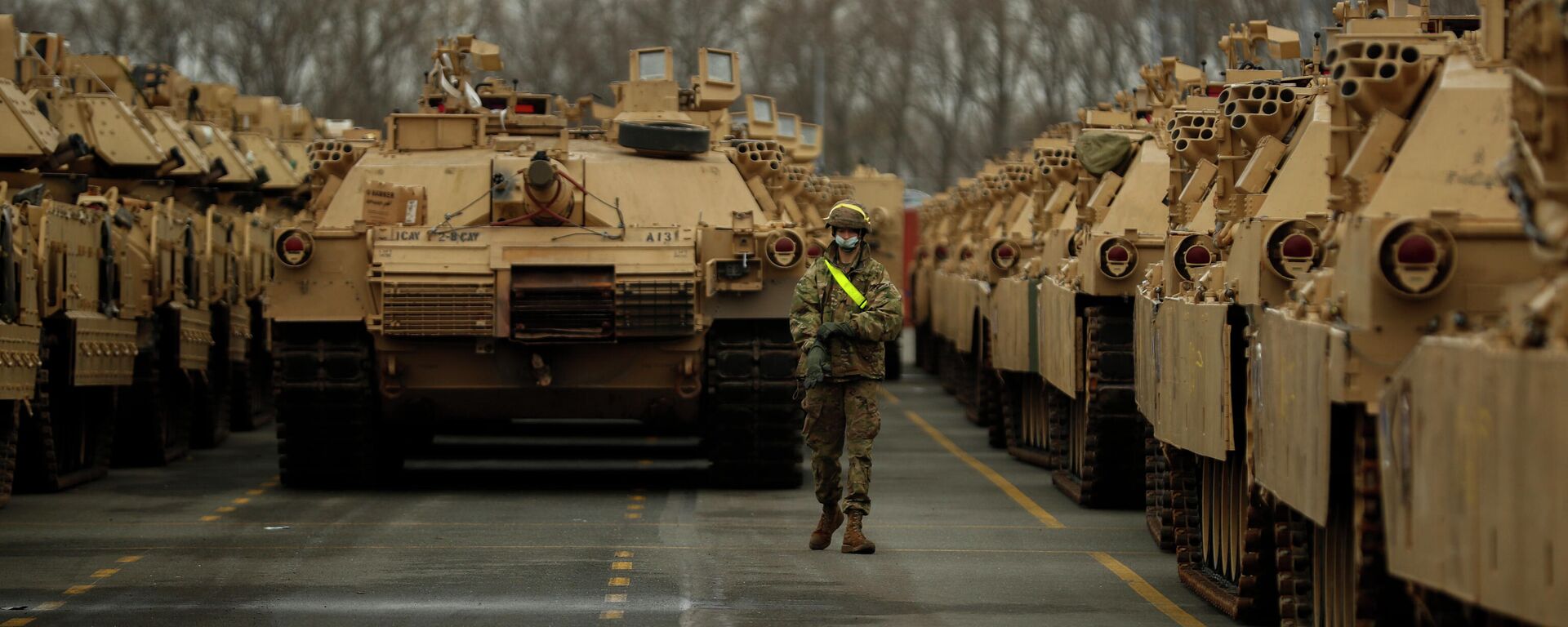
9 January 2022, 10:22 GMT
Fortunately, before the Russian operation, the realists in the US administration succeeded in influencing Biden’s decision "to provide strategic clarity" ahead of Russia's Ukraine operation that under no circumstances would the US send troops to fight Russia or intervene militarily in Ukraine, the former Pentagon officer points out.
Pyne notes that as the conflict has now dragged on for more than 100 days with no clear end in sight, the failure of Biden’s reckless policy to fight a proxy war in Ukraine has become much more difficult for the administration to deny.
Meanwhile, even though Biden acknowledged the importance of a Russo-Ukrainian peaceful settlement in a 31 May op-ed, he insisted that the US should send heavy weapons to Kiev to improve its negotiating positions. The president is
making a huge mistake, according to the ex-DoD officer.
"The problem is that although the administration might be urging Zelensky to resume peace negotiations behind the scenes (despite its denials to the contrary), continued large-scale US military aid serves as a huge disincentive to Zelensky to put his previous offer of independence for the Donbass back on the table," argues Pyne.
According to the EMP Task Force scholar, "overwhelmingly the US national security interest in Ukraine is to end the war with a compromise peace agreement as soon as possible to avoid an unwanted escalation of the conflict." Therefore, the Biden administration must take immediate action to persuade Kiev to return to the negotiating table, he believes.
West is Still Reluctant to Embrace Russia's Security Proposals
It is also clear that neither the US nor NATO are ready to return to Moscow's draft security proposals, Pyne says.
"Unfortunately, I believe that the Biden administration has painted itself into a corner," he says. "Despite the fact that many provisions in Russia’s proposed mutual security agreement would better serve the US national security interest and enhance the safety, security and stability of our NATO allies, I don’t think Biden is ready to sign such an agreement as yet. An increasing number of western experts see the wisdom of including the Russian Federation in the security architecture of Europe, but I think the Biden administration has been slow to realise that."
The former Defense Department officer argues that "rather than expanding NATO to Russia’s borders, the West would have been far better off to invite Russia to join NATO in the early to mid-Nineties to ensure Russia did not feel threatened, and to ensure that the US and Russia never returned to being adversaries."
According to Pyne, the most important thing is to negotiate and finalise a peace settlement ending the Ukraine conflict and then normalise diplomatic and trade relations between the West and Moscow, followed by the signing of a mutual security agreement creating a demilitarised buffer zone in Eastern Europe separating NATO from Russia.
In addition to stepping up military assistance to Ukraine, the US has slapped an unprecedented slew of sanctions on Russia after the beginning of the special operation. However, the attempt to "bleed Russia of both blood and treasure" has come at a cost for the West. According to CNN: "The issue is particularly politically fraught heading into election season, with gas prices continuing to rise largely because of the measures the West has taken to cut off imports of Russian oil and gas," the media outlet said.
"I am sure that President Biden is also having buyer’s remorse as the administration's heavy economic sanctions on Russia appear to have had a more adverse reaction on the US economy than Russia’s, causing the US economy to go into a recession while Russia’s trade surplus has increased significantly with the ruble at a seven-year high," says Pyne. "Biden’s economic sanctions are not merely harming the US economy. They are serving to imperil the chances of the president’s party in the looming mid-term election in November helping to ensure that the Democrats will be swept from power in both houses of Congress."
Furthermore, though President Vladimir Putin’s popularity among the Russian people has increased substantially since the special operation began, Biden’s is now at an all-time low with his average approval rating having fallen to 39percent, the former Pentagon officer highlights. In addition to that, a recent poll shows
public support for continued US military aid to Ukraine has dropped to only 38 percent of Americans polled, he adds.
"The bottom line is that the American people don’t want war with Russia. They appear ready to elect dozens of America-First Republicans to Congress who understand that the safety and security of the USA rests, not merely on maintaining a strong military, but on more friendly, productive and peaceful relations with the Russian Federation, given that it remains a nuclear superpower," Pyne emphasises.
